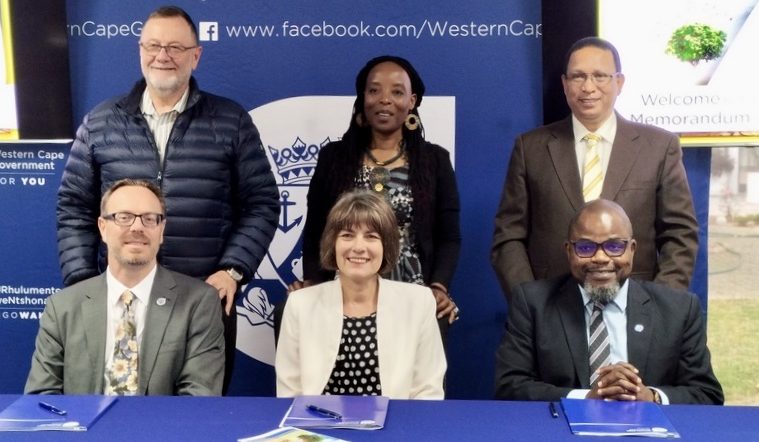Through its Department of Environmental Affairs and Development Planning, the Western Cape Government has entered into a Memorandum of Agreement (MOA) with the School for Climate Studies at Stellenbosch University. This agreement aims to facilitate a just transition to a resilient society and a sustainable, low-carbon economy.
Ivan Meyer and Anton Bredell, Western Cape ministers and co-leaders of Climate Change Governance, heralded the signing of the agreement as a testament to the government’s commitment to combat climate change.
Minister Bredell commented, ‘Climate change modelling shows that annual temperatures are rising, and the number of colder days will decrease. Droughts, floods, and heat waves will become more regular, and these trends highlight the need for a coordinated response from the government, tertiary institutions, the private sector, and the whole of society to mitigate the impact of climate change.’
ALSO SEE: CHALLENGES FACING THE SOUTH AFRICAN CAPITAL’S GREENING EFFORTS
‘The MOA underscores the value of partnerships and collaboration to advance the Western Cape as a leading province in job creation, economic development, and capacity building across disciplines. Guided by the Western Cape Climate Change Response Strategy and the SmartAgri plan, an effective response to climate change amidst global and local disaster events is now urgent,’ continued Minister Meyer.
Minister Bredell highlighted that the MOA will provide an enabling platform to pursue local and international research and capacity-building opportunities (including joint projects) to build the climate change knowledge base in the Western Cape.
He commented, ‘Climate change projections for the Western Cape suggest a likelihood of more frequent and more intense extreme weather events that threaten food security and economic growth in South Africa and the Western Cape. The MOA will enable the exchange of scientific and institutional expertise within the partnership and with global partners to drive a more rapid transition towards climate change adaptation and mitigation and a climate-resilient province.’
At the signing ceremony, Professor Sibusiso Moyo, deputy vice-chancellor of research, innovation, and postgraduate studies at Stellenbosch University, acknowledged the university’s critical role in the province’s ongoing development.
‘Research conducted by the School for Climate Studies will be pivotal in the development and application of climate-related solutions and technologies that address issues on the broader social agenda, which include job creation, skills training, poverty alleviation, and inclusivity,’ said Professor Moyo.
Concluding the event, Minister Meyer reiterated the Western Cape Government’s focus on climate change’s impact on its three strategic priorities: jobs, safety, and the overall dignity and well-being of its citizens.
‘The goal is a green, low-carbon and climate-resilient province by 2050,’ concluded Minister Meyer.
South Africa’s Commitment to Phasing Out Hazardous Pesticides

